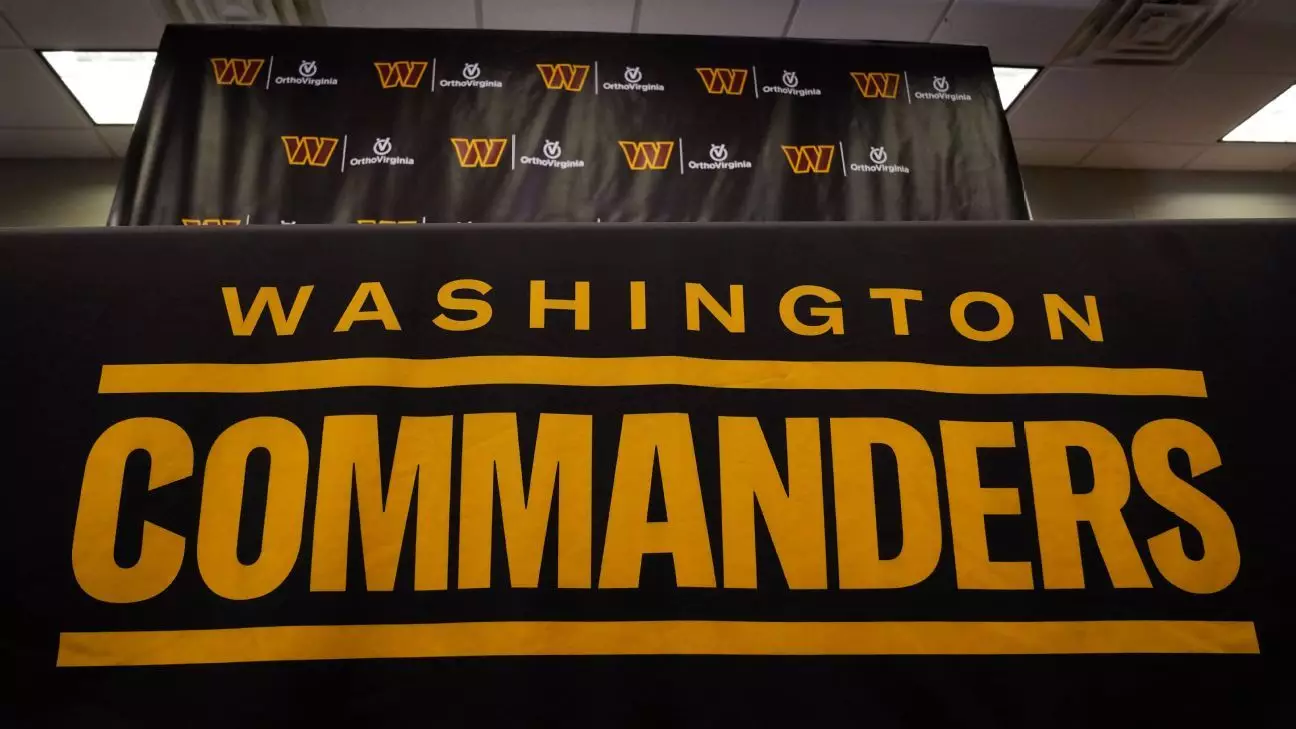As the Washington Commanders navigate the complexities of relocating their stadium, the dream of returning to the heart of Washington, D.C., has hit a major roadblock. Recent developments indicate an uphill battle for this NFL franchise as Congress has excluded a crucial land transfer provision from a new spending bill aimed at funding the government. This article delves into the ramifications of this legislative oversight and the broader implications for the Commanders and their fans.
The recently proposed spending bill was anticipated to facilitate the transfer of approximately 170 acres of federal land to the District of Columbia, paving the way for a potential new stadium on the site of the historic RFK Stadium. Washington had previously served as the Commanders’ home from 1961 until 1996, a period marked by multiple Super Bowl appearances and victories—glories that the team and its supporters nostalgically remember. However, with the exclusion of the land transfer provision, both the team and district officials are confronted with uncertainty once again.
Mayor Muriel Bowser swiftly addressed misinformation propagated by social media figures, specifically a tweet by Elon Musk, which incorrectly framed the spending bill as containing substantial funding for a new stadium. Bowser asserted that contrary to these claims, there were no federal funds allocated for stadium construction and emphasized that any legislative action was merely related to controlling the land rather than financing a new venue. This clarification underscores the tenuous nature of the Commanders’ aspirations and illustrates the disconnect between public perceptions and the realities of political negotiations.
The proposed land transfer is critical for laying the foundation of any future development. The district has a current lease on the RFK Stadium site, but with just 14 years remaining, financing a new stadium under such a timeline is a daunting task. Additionally, without congressional approval for the land transfer, the Commanders will need to reconsider their options, which may require a prolonged delay as they wait for any potential new congressional session to reintroduce the proposal.
Potential alternatives are also clouded by the allure of Landover, Maryland, where the team has played since 1997 at what is now known as Northwest Stadium. Commanders owner Josh Harris expressed a desire for a new venue by the year 2030, but the viability of that timeline is in jeopardy. Gov. Wes Moore of Maryland has shown a strong interest in retaining the team, hinting at possible incentives for development on the current property should the Commanders decide to stay put. This tug-of-war between D.C. and Maryland adds layers of complexity to an already challenging situation.
The stadium issue is intertwined with the broader themes of urban development and revitalization, particularly concerning the RFK site, which has remained dormant for over a decade. Mayor Bowser highlighted the urgent need for investment to eliminate what she termed “blight,” a description that resonates with residents who remember the vibrancy once associated with the area. By making a case for the land transfer, Bowser aims not only to facilitate a new sports facility but also to signal a commitment to urban renewal efforts in Washington, D.C.
The potential transformation of the RFK site could serve as a catalyst for economic growth, job creation, and enhanced city pride. The delay caused by the failed spending bill, therefore, represents more than just an obstacle for the Commanders; it signifies a broader struggle for revitalization in the nation’s capital, where infrastructure and civic pride are intimately interlinked.
The uncertain future surrounding the Washington Commanders’ potential return to D.C. encapsulates a multitude of challenges rooted in legislative, logistical, and local dynamics. The denial of the crucial land transfer in the recent spending bill throws into doubt any immediate hopes for bringing the team back to its former glory at RFK Stadium. As stakeholders react and adapt to the evolving landscape, it is clear that the Commanders’ journey will continue to unfold amid a confluence of historical significance and modern-day challenges.
The fate of the Commanders and their stadium aspirations is now contingent upon new legislative strategies and the possibility of rekindling political will among D.C. leaders. In this high-stakes game, both the team and its loyal fans are left waiting in the shadows, hoping for a strategy that will ultimately lead them back to their storied past while building a promising future.


Leave a Reply